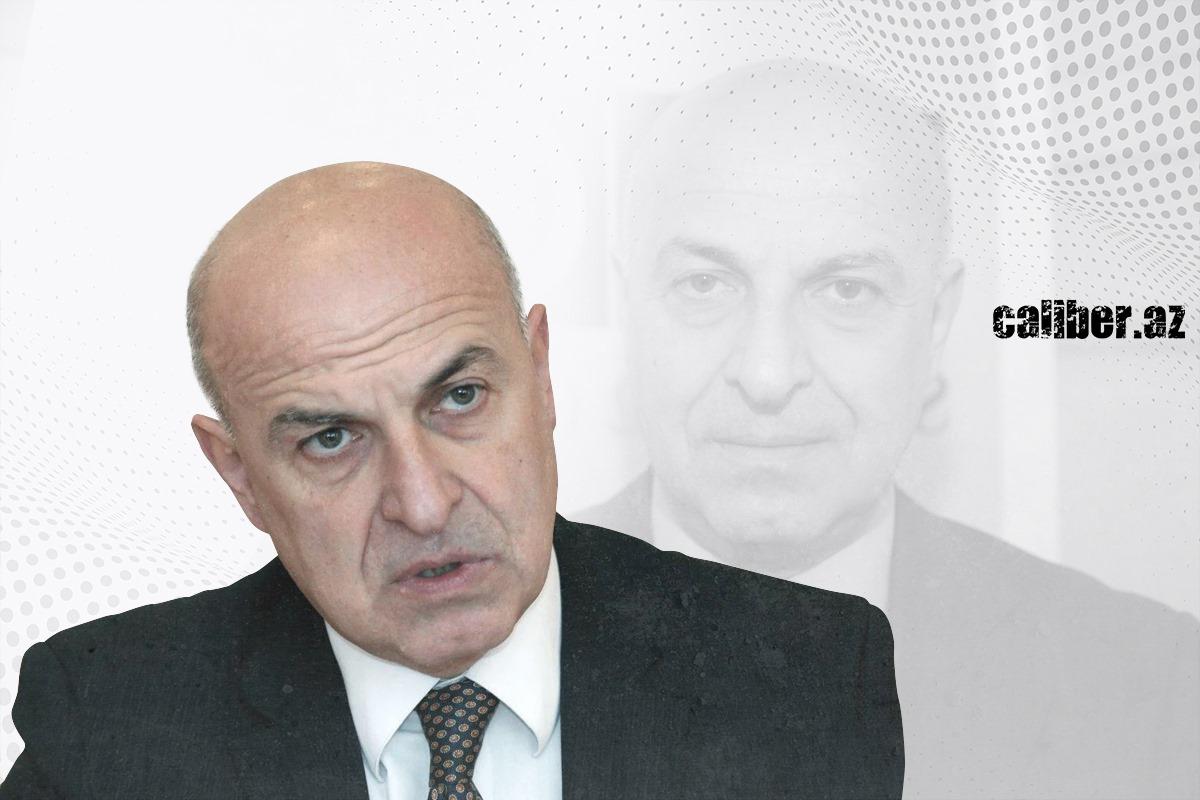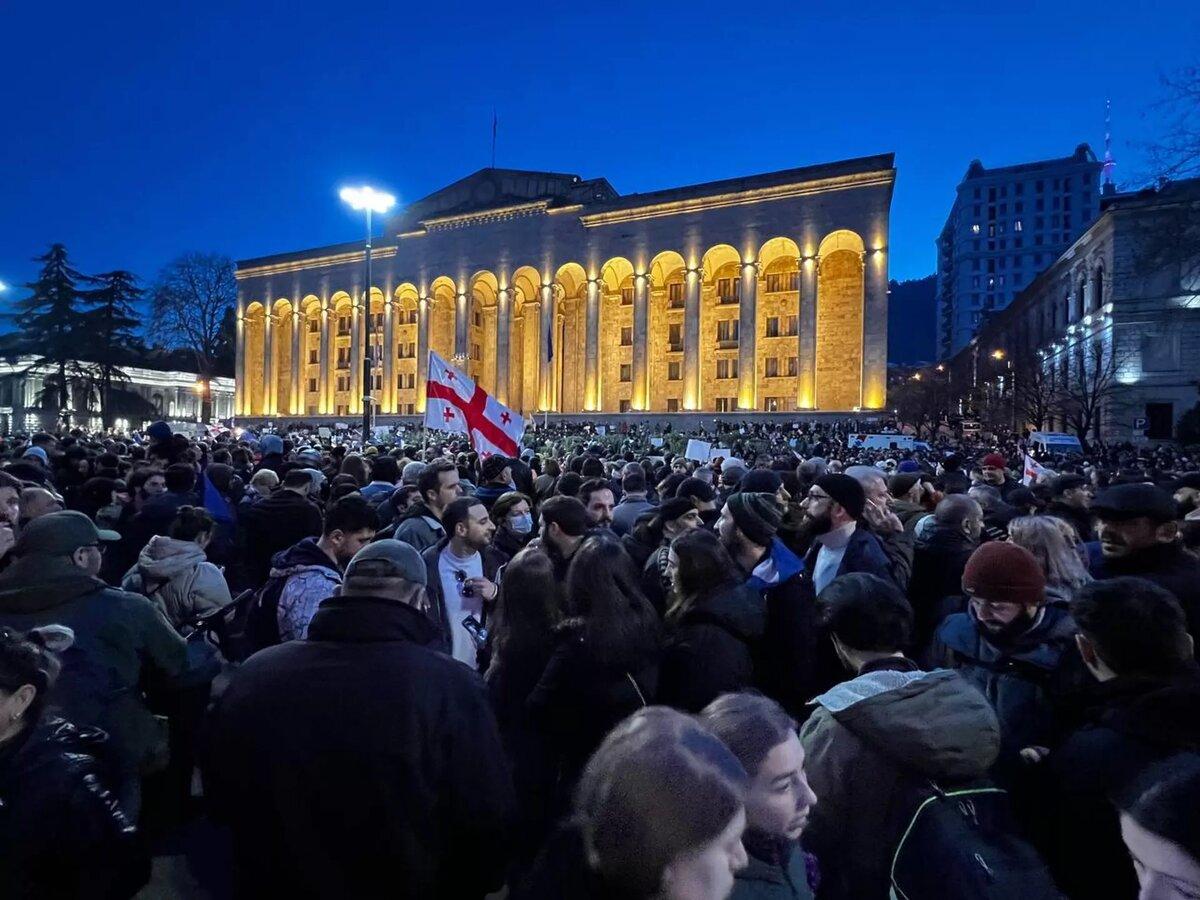Georgia's pre-election turmoil How the Law on Foreign Agents shapes voter sentiment?
Caliber.Az presents an interview with Georgian diplomat and politician, board member of the Georgian Strategic Analysis Center (GSAC), former Deputy Foreign Minister of Georgia, ex-GSAC Secretary General Valery Chechelashvili.

- Georgia is turbulent, the lack of consensus around the law "On Foreign Agents" has brought discontented people to the streets. What is the situation like today? When do you estimate will the tension subside?
- Every day there are rallies in Georgia. The backbone of the demonstrations are young people, students, who are in favour of withdrawing this law from Parliament. And this is generally understandable, because the law, in my opinion, is directed against Georgia's European integration goals. And the new generation of Georgian youth, who grew up on the wave of reforms of the Saakashvili period, got used to living in line with Western values, got used to travelling to Europe without visas, not feeling any restrictions on freedom of expression, etc. Most of them do not have any emotional annotation with Russia anymore, and if you ask them to name three or four cities of a neighbouring country, they will not even be able to cope with this task - this is a generation that is completely oriented towards the West. And when they hear what our partners from Brussels or Washington tell us, when they hear their criticism of the latest initiatives of the ruling party of Georgia, these guys are not ready to put up with it and they constantly go on demonstrations every day.

Tbilisi has already got used to this - to the turbulent situation in the capital, to the fact that the central Rustaveli Avenue is blocked almost every day. The problem is that now the government has announced that it is also planning to hold a large-scale rally in support of this law on April 29, and now there is an active mobilisation of resources, and the electorate is being drawn from the districts. So on this day we are expecting two large-scale rallies of opposing political forces in the centre of Tbilisi. It will be hot.
- How big is the possibility of riots on that day, of the situation getting out of control?
- Let me be honest - today's Georgian youth show amazing creativity in the course of holding rallies, it is striking how correctly and intelligently they are organised, including the order and level of security of these actions. However, when the number of protesters often exceeds more than 100 thousand people, the risk of unrest and provocations is certainly present. Nothing can be ruled out. Therefore, the upcoming 29th of April is a difficult day for Georgia, especially if we take into account that the maximum number of dissatisfied people took to the streets when the law on foreign agents was adopted in the parliament in the first reading. And the second session and discussion of this law is scheduled for 30 April. So everything is connected, tensions are high, but let's hope for the best.
- Why did the ruling party decide to pass the law on foreign agents now? After all, parliamentary elections are expected in Georgia in autumn. Will public sentiment not affect the rating of the Georgian Dream?
- On the one hand, it turns out that the Georgian Dream has shot itself in the foot. In general, resistance in society against the adoption of the law is very high, given that 80-85 per cent of Georgians support the country's accession to the EU. However, the Georgian Dream has its own strategy: firstly, several initiatives have been passed through parliament in recent months that seriously strengthen the Georgian Dream's position ahead of the elections. These include changes to the electoral code, the abolition of gender quotas, and a law regulating offshore accounts. And now, after the excitement around the law on foreign agents, these initiatives of the Georgian Dream have already been forgotten in society, and the focus of attention has been shifted. Which, in my opinion, can be called an important victory for the ruling party ahead of autumn.
Secondly, the Georgian Dream seems to be seriously annoyed by NGOs that do not depend on it financially and, in fact, the ruling party is taking measures to close down such organisations with this law. There is still a justified calculation here that whoever is identified as a foreign agent will no longer want to work in this field. Besides, there are NGOs working in Georgia that are professionally engaged in analysing electoral processes. And now, if the law is adopted, all these organisations will also be systematised and put under the "hood", which will facilitate the activities of the ruling party during the elections.
This whole pre-election game moderated by the ruling party is seriously polarising society, forcing voters to choose only between the two extreme political forces in society - the opposition and the Georgian Dream, practically excluding any third parties and movements from the game. It is clear that it will be difficult for other forces to overcome the five per cent barrier during the elections and get into the parliament. Which, in my opinion, also plays into the hands of the ruling party.
Another point is that while the law is increasingly criticised in society, it is actively supported by media resources and politicians in Moscow. And this also causes a negative reaction in Georgia.
- How do you think events will unfold from now on?
- Anything is possible. If the pressure by the protesters does not weaken, I do not rule out that it will be extremely difficult for the Georgian Dream to pass the law in parliament. Moreover, all this is happening amidst a flurry of statements by Western politicians. The US State Department alone has already made several statements on this topic, not to mention the statements of European politicians. And the tone of these statements is only getting tougher. And I myself am already worried, especially when Western politicians say that this law will not only not bring Georgia closer, but will also distance Georgia from Europe. And this indicates the likelihood that after the adoption of this law Georgia's EU candidate status may be reconsidered at all. In other words, many years of Georgian political changes will come to nought. This may cause even more serious reactions in Georgian society and affect the position of the Georgian Dream and its rating.

So, I think the ruling party leadership should think hard about their future strategy and lobbying for this law, especially considering that the Georgian Dream has almost already won a tactical victory before the elections, as I have already mentioned.
- How does Georgian President Salome Zourabichvili behave in this situation?
- I did not vote for Mrs Zourabichvili, but now I can say that she is probably the only bright spot on the Georgian political Olympus. She has a very correct constructive position from the point of view of Georgian state and national interests, she communicates with the society, unlike the representatives of the Georgian Dream, maintains contacts with our Western partners and by the way she has stated that she will use her veto right if this law is adopted. If it is passed, another political move is also possible - a class action lawsuit against the Georgian Dream, as this law is in direct contradiction with the 78th article of the Constitution of Georgia, which states that all state mechanisms of the country, including the Parliament, must do everything to ensure the success of Georgia's European integration processes.
- While political battles are going on in Georgia, there has been a positive shift in the negotiations between Baku and Yerevan - Armenia is returning four Azerbaijani villages under long-term occupation, and delimitation and demarcation of a significant section of the border has begun. What is the assessment of these developments in Georgia?
- As far as I understand, the negotiations between Azerbaijan and Armenia are now proceeding in three directions. These are the delimitation and demarcation of the border, work on signing a peace treaty, and active consultations on establishing a transport corridor to Nakhchivan. And although at first glance all these three negotiation tracks seem to be autonomous, I think that this positive shift will have an impact on the whole course of negotiations between Baku and Yerevan and will set a new dynamic. A very good precedent has been created, and, by the way, it is not even the first one, which also, in my opinion, indicates that positive processes in the dialogue have been outlined. I am talking about the case when an Azerbaijani officer was wounded as a result of shooting from the Armenian side, and the Armenian official bodies honestly took the blame, apologised and promised to investigate. This also seemed to me to be a kind of growth of trust between the sides.
I think that with such small steps we are approaching peace between Armenia and Azerbaijan. Of course, I would very much like it to happen as soon as possible. Apart from Baku and Yerevan, Tbilisi is extremely interested in this. Because only after the signing of a peace treaty between Azerbaijan and Armenia we can start talking about full-fledged trilateral cooperation in the region and the use of the huge potential of the South Caucasus for the benefit of the three states. So, we look with great hope at the ongoing positive developments in the dialogue between Baku and Yerevan.








